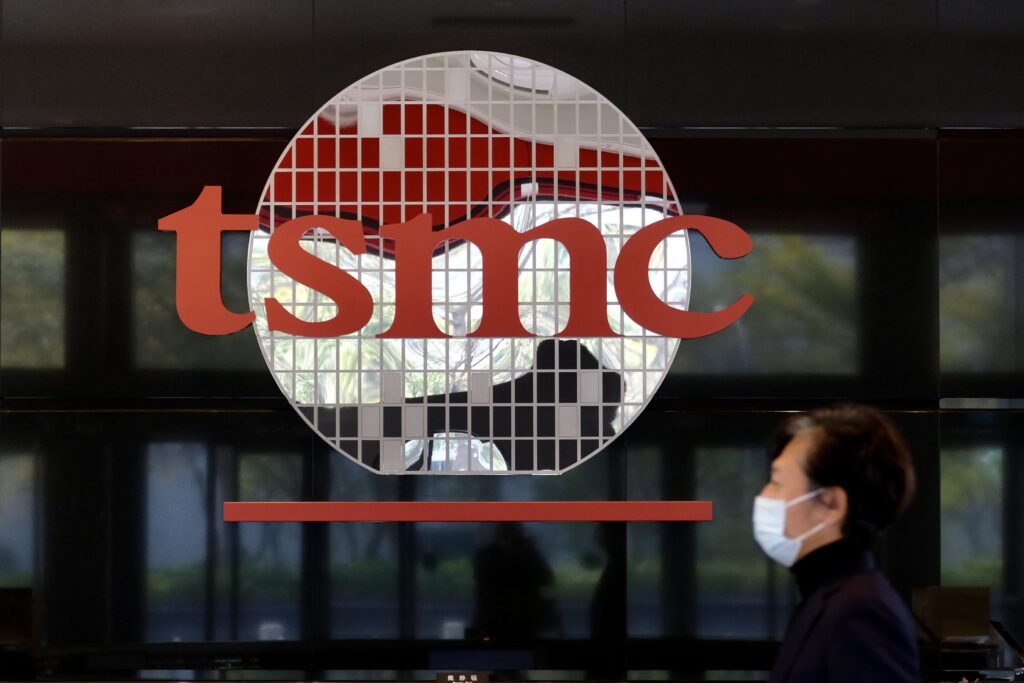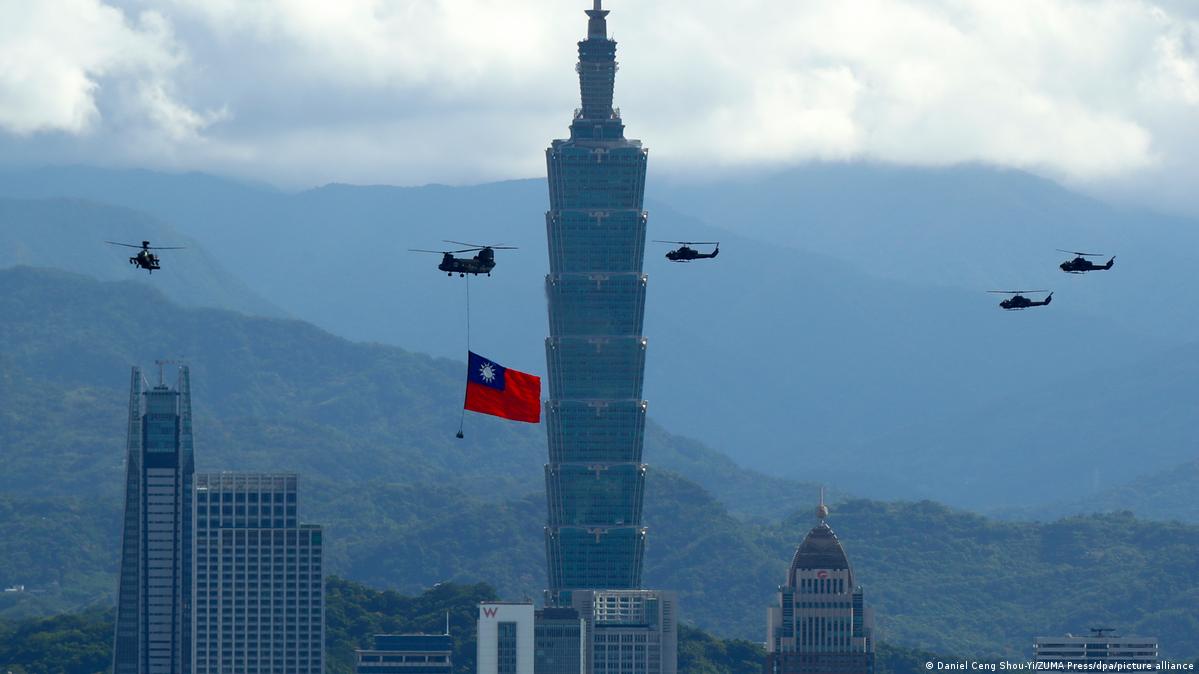The elections in Taiwan are drawing the world’s attention. The interest is not because of local democracy, but because of the constant threats from China.
(swissinfo.ch) In the last 30 years, Taiwan has gone from being an anti-communist military dictatorship to an exemplary democracy. Peace and prosperity reign in the world’s 16th largest economic power (Switzerland is in 20th place). Taiwan’s future is considered decisive in the face of Chinese pressure. But why? What can Taiwan do about it? And what is the ideological significance of Taiwan for the West?
swissinfo.ch explains the most important questions about the country with the help of Simona Grano, a sinologist at the University of Zurich, and Ho-fung Hung, a political scientist at Johns Hopkins University (USA).
Taiwan’s importance
One important reason has four letters: “TSMC”. The abbreviation stands for “Taiwan Semiconductor Manufacturing Company”, headquartered in Hsinchu.
This is where a large part of the semiconductors used in cell phones, laptops, cars, refrigerators, televisions and digital weapons systems used around the world are manufactured.
“Taiwan also has geostrategic importance as the center of global supply chains and maritime trade routes,” says Grano. For the researcher, the country’s independence is therefore of central importance for “global stability”.

Why is China claiming Taiwan?
Beijing’s hostile stance dates back to the Chinese civil war in 1949. At that time, the communists under the command of the Chinese revolutionary Mao Zedong defeated the nationalists of General Chiang Kai-Shek. After the defeat, he fled to the island of Taiwan along with more than two million Chinese, which had previously been controlled by colonial powers such as Portugal, the Netherlands and, finally, Japan.
Chiang Kai-Shek’s nationalist party ruled Taiwan as a dictatorship for 40 years and claimed all of Chinese territory. Since the first opposition party was recognized in 1987, Taiwan has become a democratic model. “At no time in history was Taiwan part of the People’s Republic of China, which was founded in 1949,” Hung explains.
However, the Chinese government maintains that “Taiwan is a renegade province”, which must be “reunited with the motherland by force if necessary”, as President Xi Jinping emphasized in his 2024 New Year’s speech. Due to the Chinese veto, Taiwan is not currently represented at the UN. Part of China’s policy is not to maintain diplomatic relations with countries that recognize Taiwan’s independence.
The list of countries that officially recognize Taiwan is therefore small: only 12, including Guatemala, Haiti and the Vatican.
Switzerland does not formally recognize Taiwan either. “The country adopts a one-China policy and does not recognize Taiwan as an independent state,” says the Swiss Ministry of Foreign Affairs (EDA).
How to arm yourself against China?
Ideally, the country has a trump card: “Ideologically, Taiwan is important because it contradicts China’s claim that Western values and democracy are incompatible with Chinese culture and local values,” adds Grano.
These achievements are a consensus in Taiwan today, as Hung explains: “Despite different political attitudes towards China, the most important participants in Taiwan’s internal politics agree on one issue: they all want to maintain and defend the human rights they have fought for in recent years and the independent democratic society.”
But what can social cohesion achieve when faced with a large army? It’s clear that Taiwan can do little to counter its much larger neighbor in the event of an escalation.
However, the government is doing a lot to increase the price of a Chinese attack. For example, compulsory military service has been increased from four to twelve months as of January 1, 2024. The US also provides military support to Taiwan. The authorities in Taipei are also strengthening their unofficial channels with parliaments and governments in other countries, against the backdrop of Russia’s war of aggression against Ukraine.
A model of democracy?
Grano sees Taiwan as an “excellent example of a country that has managed to make the transition from authoritarian one-party rule to democracy without any authoritarian backsliding”. This transition has been peaceful. There have been three changes of government since the first free elections in 1996. The question of whether elections bring about political change and whether governments relinquish power after losing elections is considered a litmus test for the functioning of a democracy.
In 2019, Taiwan became the first country in Asia to introduce same-sex marriage. For the researcher, one thing is certain: “In Asia, Taiwan is one of the most liberal and free countries, where diversity, human rights and civil liberties are respected.”
Taiwan’s struggle for international recognition is a driving force for the country’s political forces to set an example in terms of human rights and democracy. According to Hung, this desire on the part of Taiwanese society has been further strengthened by authoritarian developments in Hong Kong, China. The Johns Hopkins University professor believes that “Beijing’s promise to accept a country with two different systems is worthless”. Despite the threatening situation, however, he is optimistic about Taiwan’s future at independence.
Switzerland’s importance to Taiwan
Grano sees many parallels: “Like Taiwan, Switzerland is a small country. Like Taiwan, Switzerland is a democratic country in which civil liberties are respected. For Switzerland, the promotion of democracy throughout the world is a constitutional mandate.” This is particularly evident in the lively exchange between Switzerland and Taiwan on the issue of people’s direct democratic rights: Taiwan introduced these rights in 2003 and has reformed them several times since.
Among other things, the signature hurdles for popular initiatives and referendums have been lowered, which has led to more than a dozen voter-triggered referendums in recent years on topics such as food security, nuclear energy and the organization of democracy. “Switzerland clearly serves as a reference point for Taiwan in terms of direct democracy,” Hung points out.
What is Switzerland’s presence?
Taiwan is Switzerland’s fifth most important trading partner in Asia. According to the Swiss representative in Taipei, Claudia Fontana Tobiassen, trade between the two countries has “almost doubled since 2010”. Currently, “more than 120 Swiss companies” are present in Taiwan. Among them is train and wagon manufacturer Stadler Rail, which recently received a large order for the underground railroad in the port city of Kaohsiung.
As Switzerland does not recognize Taiwan as an “independent state” due to China’s veto, diplomatic relations are handled by the “Swiss Industries Trade Office” in Taipei and the Taipei Cultural and Economic Delegation in Bern for the Taiwanese side. Both representations report to the respective foreign ministries and are headed by career diplomats.
Historically, Catholic missionaries and experts from the Bethlehem Mission in Switzerland have also contributed to Taiwan’s development over the past 70 years: in vocational training, health and minority protection for members of Taiwan’s 16 indigenous peoples.
Editing: Benjamin von Wyl / Adaptation: Alexander Thoele *** Translated with www.DeepL.com/Translator (free version) ***
